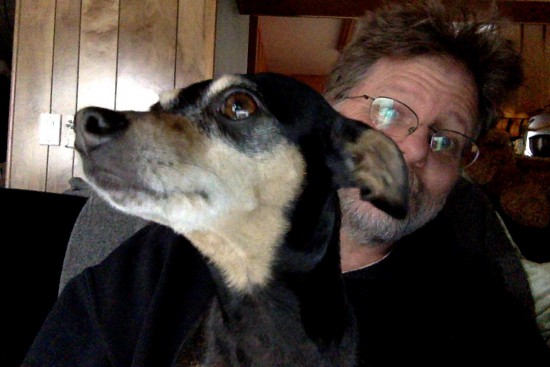You probably didn’t notice that I didn’t put my first night’s NaNoWriMo effort here on November 1st. It’s not like people wait all year to glimpse the unedited, unplanned, product of my imagination. It is rarely sparkling prose. My first sketch of a story (not even a draft, really) often turns out to be conversations between people about what they could do, and not a whole lot of people doing things. Kind of an outline-the-plot-with-dialog technique. They are also rather light on description. Periodically in this year’s effort, I put great emphasis on description, and was pleased with the result. But not on November 1st. Maybe some other time I’ll post my description of a breakfast diner in rural North Dakota.
But even though I’m less proud of this month’s first chapter than I have been of others, it does set the scene for the action that follows. (Well, the action that is subsequently discussed.) So, here it is. You don’t have to thank me, it’s what I do.
Note that as usual, I didn’t spend time doing silly things like proofreading or correcting errors or (God forbid) tightening up ambiguous pronouns. I’ve still got to finish my NaNoWriMo effort this year, and there’s only six hours left.
He didn’t see the man come in, was only peripherially aware when he sat two stools down from Harper. When he sat he exhaled heavily, as if he had taken off a backpack full of stones. “Beer,” he said, “Give me the IPA.” Harper was taken by the man’s smooth baritone voice. Though he spoke softly his voice carried, bearing a tone of authority. Harper turned and studied the man’s profile as the other waited for his drink.
He was tallish, on the thin side, darkish hair swept back, narrow straight nose. Dark eyes, thin lips pressed together, creasing his face. He seemed to be in pain, concentrating on not letting it show. His suit was probably a nice one, Harper thought, though he wasn’t sure exactly how to tell suits apart. The stranger’s navy tie with yellow stripes was loosened and his top button was undone. His right hand tapped the bar in impatience, the left he kept clenched in his lap. The other man’s beer arrived and he turned to Harper and raised his glass. Guiltily Harper returned the gesture.
“Long day?” Harper asked.
The man nodded. “I’m not even sure what a day is anymore.”
It was then that Harper knew he was talking to the devil. There was no one thing to tip him off, no weird glimpse of horns or red skin or cloven hooves for feet. There was nothing out of the ordinary about the guy at all, except that he was the Prince of Darkness, loose on Earth to spread torment and damnation.
Up until that moment, Harper had not considered himself a religeous man. He still didn’t, he realized. The bartender went about his work, pausing for long stretches to watch TV, seemingly unaware of the Dark One sitting on one of his vynyl-topped barstools.
“What brings you round here?” Harper asked.
“The beer,” the devil said. “Not the conversation.”
Harper took the hint and turned back to his own beer. He tried to nurse it, but far too quickly it was gone. “Another?” the bartender asked when there was half an inch of beer left in his glass.
He nodded. “And one for this guy.” He pointed down to where the devil sat. He counted out twelve dollars and saw that there would be no more beers tonight, or ever again until he got a job.
The bartender pulled the two beers and set them in front of the two patrons.
The devil regarded his beer with narrowed eyes and turned to Harper. “What’s this?”
Harper shrugged. “You looked like you were having a tough day.”
“And now you’re going to ask me for a favor.”
Harper blinked in surprise. “No.”
The devil rocked back on his stool and looked Harper up and down. “Everybody wants something.”
A job, a place to call home, friends, a purpose for his life. “Not so much. You just seem to be having a rough time right now.”
Somehow now the devil was on the stool next to Harper. He couldn’t remember it happening. “Have you ever said, ‘it’s hotter than hell in here?’”
“Yeah, I suppose.”
“You were wrong. Hell is really fucking hot.”
“Well, at least you can get away for a beer sometimes.” Harper raised his glass to illustrate what a fine thing that was.
“I am in hell right now. I am always in Hell. I always will be in Hell.”
“Oh, I get it. So it’s not like a physical place then? More like a state of mind?”
The devil drained his beer and set down the glass. “Oh, it’s a physical place, all right, just not in this space-time continuum. I’m what you might call extra-dimensional. I can exist in both places at the same time. And that means I’m bathing in liquid sulfur and having my flesh boiled off my bones at the same time I’m sitting on this stool being annoyed by some guy who didn’t pay attention in Sunday School.”
Sunday School was a distant memory, to be sure, and indeed Harper had not paid attention, but he was pretty sure the phrase ‘space-time continuum’ had not been used.
“So how hot is it, exactly? Sulfur boils at 445 C, so it’s cooler than that, right?”
“There are areas that are much hotter than that. I avoid them.”
“You should air condition,” Harper said. He discovered his glass was empty, which ruined the fun of his little joke.
The devil scowled. “Don’t mock me, human.” To Harper’s ear, though, he didn’t sound angry.
“I’m not mocking you at all. It’s a straightforward engineering problem. You need to move heat from one place to another. All that takes is energy, and you have tons of that. Possibly you could use sulfur as the refrigerant.”
“I am skeptical.”
“You’d be making some parts of Hell cooler, at the expense of making other parts of hell much hotter. Of course, it would be much more efficient if you had a cooler place to pump the heat to. Maybe…” An idea was taking shape in Harper’s head. A brilliant solution to the devil’s problems, made all the more beautiful through the haze of the five beers doing the rhumba in Harper’s brain. “So, you can cross dimensions, right?”
“Obviously.”
“Could you open up a hole from here to there? You could use hell like a geothermal source, pump the energy over here, generate a shit-ton of electricity, and cool things down a bit on your end. Not a whole lot, maybe, but enough you might notice a cool breeze. Meanwhile humanity would benefit from a cheap, clean power source.”
“The benefit of humanity is not my concern,” the devil said. “Although I do encourage technological progress where it will result in more humans on earth. More souls.”
“You must love nitrogen fertilizer, then.”
“Yes. It will be a shame when its overuse leads to the destruction of a large amount of the world’s farmland. It will be a busy time for me.”
“So, you like for there to be more people, so you can lead them astray?”
“I suppose you could put it that way. Think of me as a farmer.”
“Then this should be a no-brainer for you, don’t you think? This could mean a lot more kids growing up to be sinners.”
“You amuse me, Mr. Harper. You think you’re tricking me into making life better for humanity here on Earth.”
“I’m not stupid enough to think I can trick you.”
“In fact, you’re fooling yourself. You still don’t believe, deep in your heart, that this project could result in countless more souls in eternal torment.”
Harper didn’t have a good answer for that. “I guess I don’t. Modern agriculture made it possible for me to be here. So if you were behind that, then thanks.”
The devil smiled, showing two neat rows of narrow teeth. “Very well, Mr. Harper. I will provide you with the necessary resources and technical advice. You will install a cooling system for hell, and you will use the energy to provide clean power to humanity.”
“Uh, me?”
The devil’s smile grew. “Of course. Who else?”
“But I’m not even remotely qualified. I don’t know anything about power stations, or drilling a hole across dimensions, or getting a permit for… whatever I need permits for. I suck at that stuff.”
“Well, Mr. Harper, I think it’s time you started learning.” The devil reached into his pocket and pulled out a smart phone. “Here. You will need this. You will be getting calls from some of my people.” He set the phone on the bartop between their glasses.
Harper reached out, then hesitated. If the stories were true, accepting a gift from the devil seemed like a bad idea.
“Oh, for fuck’s sake,” the devil said. “Not every gift incurrs an obligation. This is just a tool I’m providing so you can do your job. You can return it when you’re done if it will make you feel better.”
Harper picked up the phone and held it like it might bite him. It had a satisfying solidity. No lightning came from above. He set it back down. “You have the wrong guy,” he said.
“I’ve been around for a long time, Mr. Harper, and you are one of a handful of people in all the history of your miserable race that has surprised me. So shut up and take the phone before I get angry. You are going to air condition hell. It is not for you to decide.” He reached into his pocket again, and pulled out a credit card. “I will pay you, of course. Fair compensation for your labor. Once again, no additonal obligation.”
“How much?”
“You decide. That card has no limit. None at all. Soon you will be hearing from my money people to arrange financing the project. In the meantime, I’ve asked the bartender to make sure your glass is never dry tonight. You have a new job, after all. It’s time to celebrate.”
 And September is almost October is almost November and November is NaNoWriMo. Some years I dread it, other years I look forward to it. This year I’m starting to work up a pretty good stoke about the month. I’ve been pondering the setting I described in my description of a plausible-future Miami. I’ve had tons of ideas for characters, and lots of thought on how to enrich the world. Along with the algae harvesters and whalers who work outside the towers, there are divers. People who take a deep swim into the drowned suburbs looking for things that still have value in this world. Swimming through a structure that was not meant to be underwater, and spent years being pounded by waves as the water line rose, is not terribly safe. Most of the houses have collapsed.
And September is almost October is almost November and November is NaNoWriMo. Some years I dread it, other years I look forward to it. This year I’m starting to work up a pretty good stoke about the month. I’ve been pondering the setting I described in my description of a plausible-future Miami. I’ve had tons of ideas for characters, and lots of thought on how to enrich the world. Along with the algae harvesters and whalers who work outside the towers, there are divers. People who take a deep swim into the drowned suburbs looking for things that still have value in this world. Swimming through a structure that was not meant to be underwater, and spent years being pounded by waves as the water line rose, is not terribly safe. Most of the houses have collapsed.



